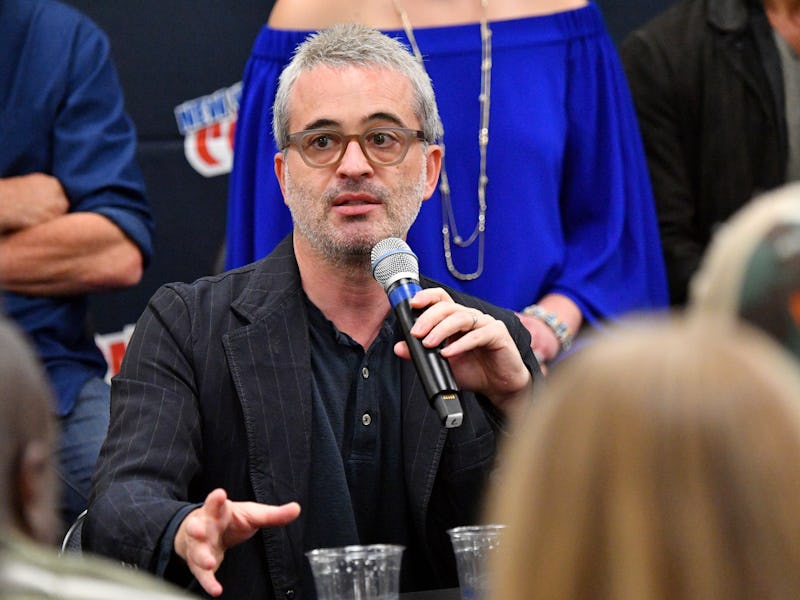'Star Trek: Discovery' Producer Addresses Klingon Controversy
"You'll see a lot of different Klingons."

Klingons have been a staple of Star Trek from the beginning, so, on some level, it made sense for Star Trek: Discovery to explore the infamous war between Starfleet and the Klingon Empire. Discovery’s iteration of the Klingons, however, is visually different than anything Trek fans have seen before. One of the show’s executive producers explained the look and new-found complexity of the Klingons at New York Comic-Con 2017.
While sitting on stage at NYCC, Discovery EP Alex Kurtzman waded into some of the biggest controversies plaguing the show: What’s up with the Klingons, why do they look so different, and why are we spending so much time with them?
During the audience Q&A at the Star Trek: Discovery panel, one fan stepped up to the microphone and inquired about the look of Discovery’s Klingons. The fan expressed concern that the long-time enemies of the United Federation of Planets had been made to resemble people of color — people normally colonized and stripped of their culture throughout Earth’s history — for Discovery.
Kurtzman, leaning forward in his chair, took on what he termed a potential “punch” to try and settle this Klingon controversy once and for all.
“There have been lots of questions about that, there have been lots of questions about the look of the Klingons and the truth is that we wanted to shift everyone’s perspective about what the Klingons are because they’re so traditionally relegated to just being the bad guys,” Kurtzman said. “And that meant making visual changes, too, while hopefully maintaining and retaining the spirit of the original Klingons.”
Speaking to the idea of the “other” in our own culture, Kurtzman said that these “others” are typically just “a mirror to ourselves,” reflecting the worst things about us and our prejudices. “And when we conceived of the idea of the first season being about the war with the Klingons it was terribly important for all of us to make sure that we represented both sides of the war in a way that was understandable and relatable,” Kurtzman said. “And while the Klingons have been given specific treatment and various iterations in the past, we needed to know what it was like for them to go through this, too, and to humanize, for lack of a better word.”
Kurtzman addressed any specific similarity the Klingons might have to a human race by adding: “So, you’ll see lots of different Klingons, is the answer. And they were all built around the central premise of what the Klingons are but it is terribly important to us along with everything else to humanize them, to give a story to their experience, to give understanding to their culture, to give understanding to why they want what they want. If we didn’t do that and we made them a one-dimensional bad guy then we wouldn’t be Star Trek.”
NEW YORK, NY - OCTOBER 07: Sonequa Martin-Green, Mary Wiseman, Shazad Latif and Gretchen J. Berg speak onstage during the Star Trek: Discovery panel during 2017 New York Comic Con - Day 3 at Theater at Madison Square Garden on October 7, 2017 in New York City. (Photo by Dia Dipasupil/Getty Images)
Discovery is Star Trek for, uh, the next generation. Just like its Trek predecessors, Discovery is pushing beyond the bounds of what people expect not only IRL, but what they expect of the in-world universe. Mary Chieffo — who sat on the panel but whose Klingon character L’Rell has yet to get too much screentime in Discovery — hinted that Episode 4 would give more weight to the Klingon story. Maybe grudging fans who remain unsure about the Klingons’ role as both a significant plot point and a moral representation of the “other” will be reassured by Chieffo’s promise.
Star Trek: Discovery is now streaming on CBS All-Access.